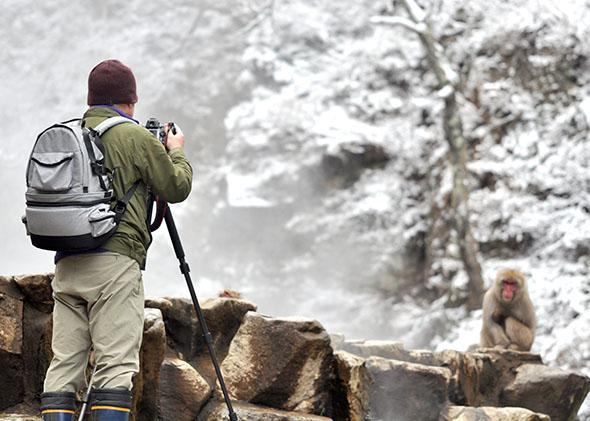We’re in the middle of the 28th annual Shark Week, a week of shark-themed documentaries on the Discovery Channel. In recent years, Shark Week has been criticized for sensationalism and pseudoscience, but the series is currently in the process of reinventing itself. Against the backdrop of this important discussion about how sharks should be portrayed on Shark Week, Chris Palmer’s new book Confessions of a Wildlife Filmmaker: The Challenges of Staying Honest in an Industry Where Ratings Are King makes for a great read. This behind-the-scenes look at wildlife documentary filmmaking shows that problems with the industry run deeper than most viewers would ever imagine.
Palmer is an industry insider who has long wrestled with the ethical issues surrounding nature documentaries, and his book is a thorough and deeply personal look at these problems. Some ethical questions are relatively mild. For example, is it dishonest to film animals in captivity and represent the footage as depicting wild behavior? (Disclosure: Palmer mentions my Slate story criticizing the Animal Planet special that presented mermaids as real. For the record, mermaids are not real.)
Other problems are more troubling, such as the long and little-known history of filmmakers drugging, injuring, or killing wildlife to get the shot they wanted. Palmer’s perspective as a longtime advocate leads to interesting insights about how TV and film can be bad for animals and misleading to audiences. Many people have criticized the racist, sexist, and homophobic rhetoric from some of the stars of Duck Dynasty, for instance, but Confessions was the first place I’ve seen the show criticized for glorifying shooting and killing ducks.
Most wildlife documentary filmmakers get into this business because they love animals, Palmer says. They want to use the powerful medium of film to educate the public, and perhaps to even inspire conservation efforts for threatened wildlife. However, pressures from the industry force filmmakers to make increasingly more troubling compromises. If a documentary focuses too little on conservation, it won’t inspire change, but if it focuses too much on conservation, people may not watch it because it appears preachy. If a documentary takes storytelling shortcuts, it may seem dishonest. But without those time- and money-saving shortcuts, filmmakers won’t be able to afford to make the documentary in the first place.
For example, Palmer tells the story of meeting a fan of his Imax documentary Whales who was still emotionally moved years later by the story of a mother and calf. This fan was disappointed to learn from him that the whales in the movie were actually several different mother-calf pairs, because tracking a single mother and calf across a monthslong migration would have been logistically difficult and expensive.
Shark Week is currently struggling with many of the issues Palmer describes. While the Discovery Channel has promised not to show any more fake documentaries like the ones falsely claiming that the long-extinct megalodon is really alive, the company has yet to comment on criticisms involving wildlife harassment or blatant fearmongering. Still, so far, I’m enjoying this year’s Shark Week. Discovery has made a lot of changes. And we’ve had some lively discussions on Twitter using the hashtag #SharkWeek.
Confessions offers not only suggestions for how the network can improve, but ways that concerned viewers can help. Palmer points out that thanks to social media, viewers have power. I agree, and have long used twitter to fact-check troubling shows and call for reform. As Palmer’s book shows, a well-done wildlife documentary can help turn the tide in public perception of threatened and misunderstood animals like sharks.
